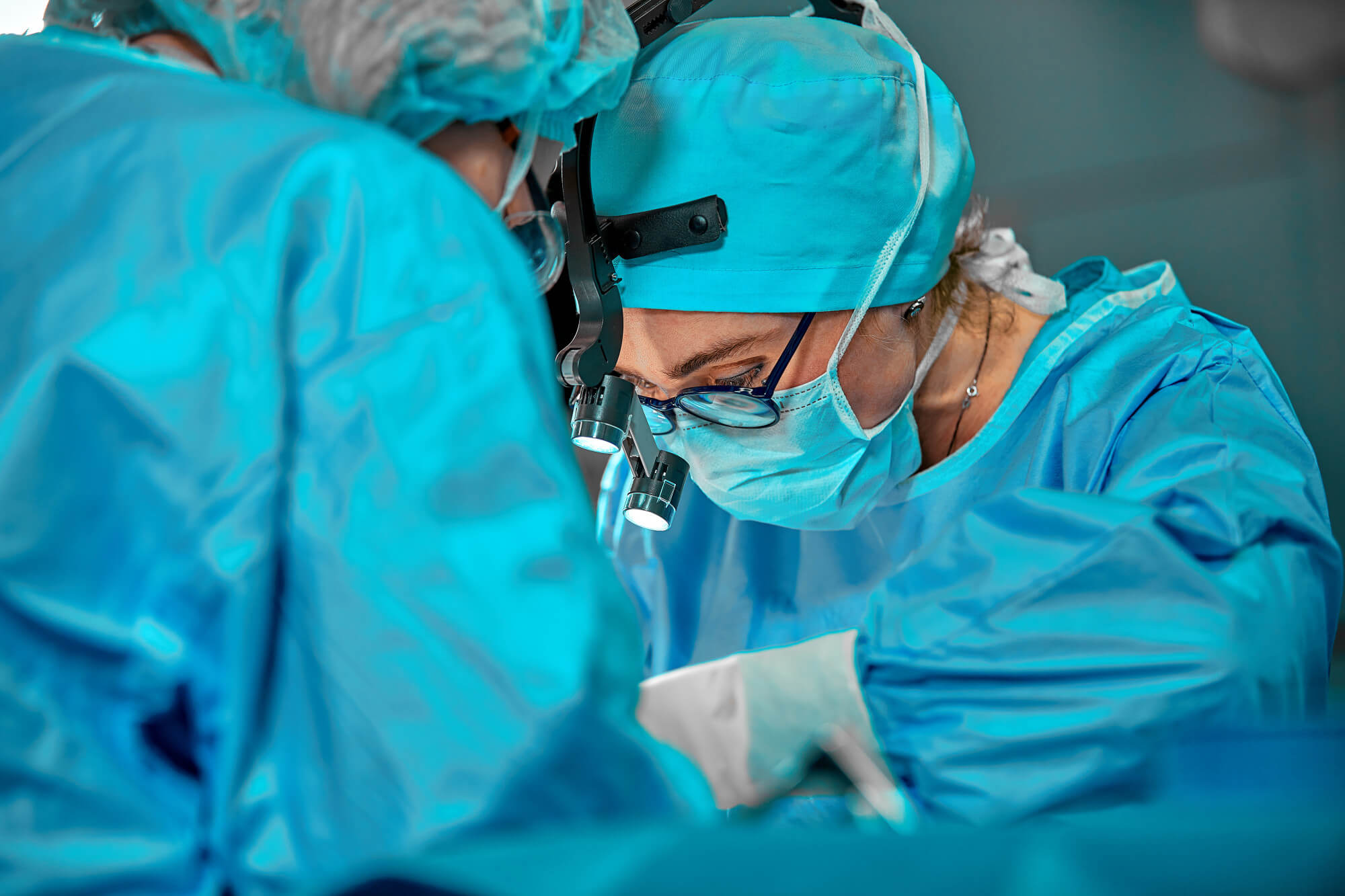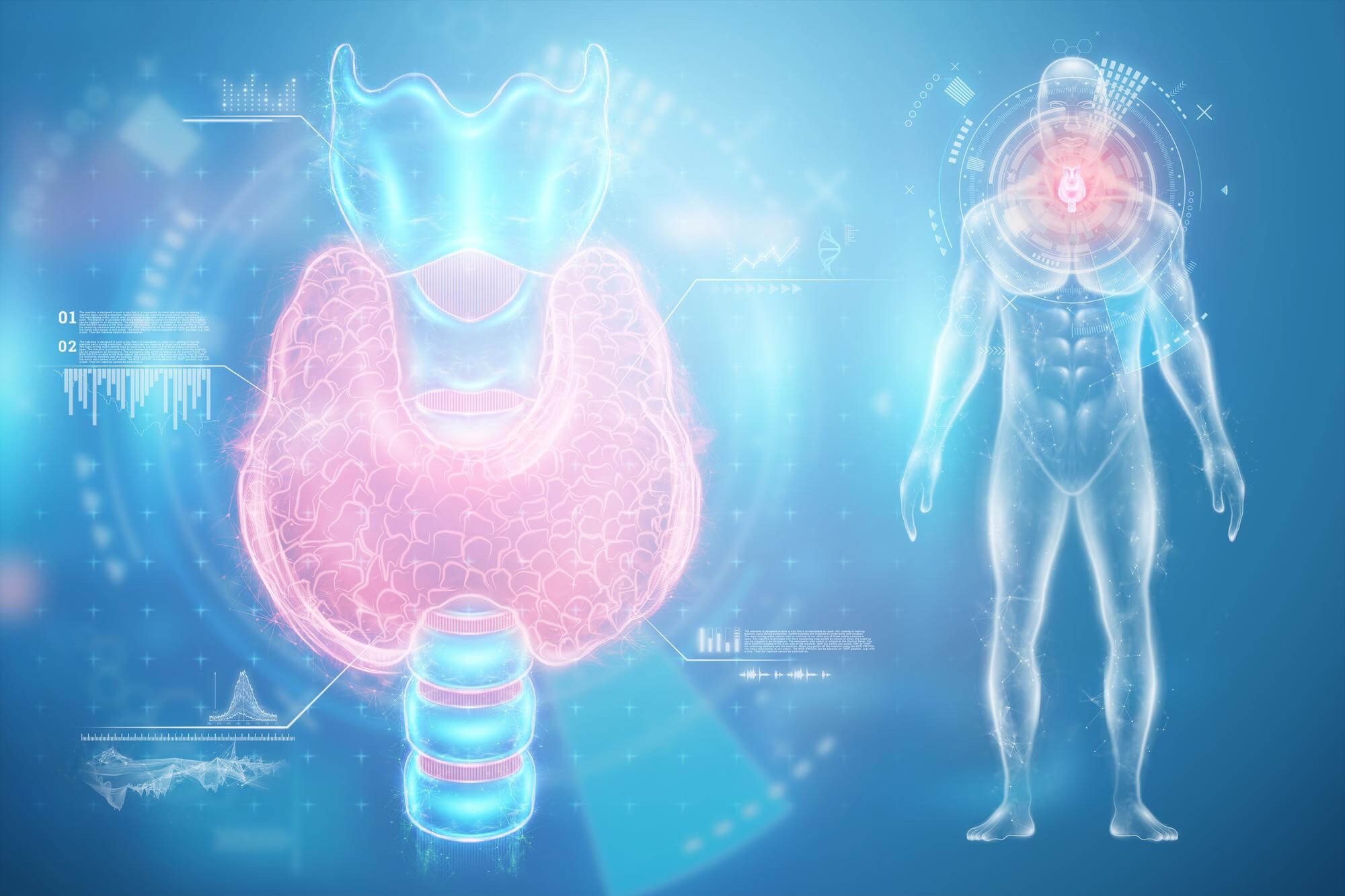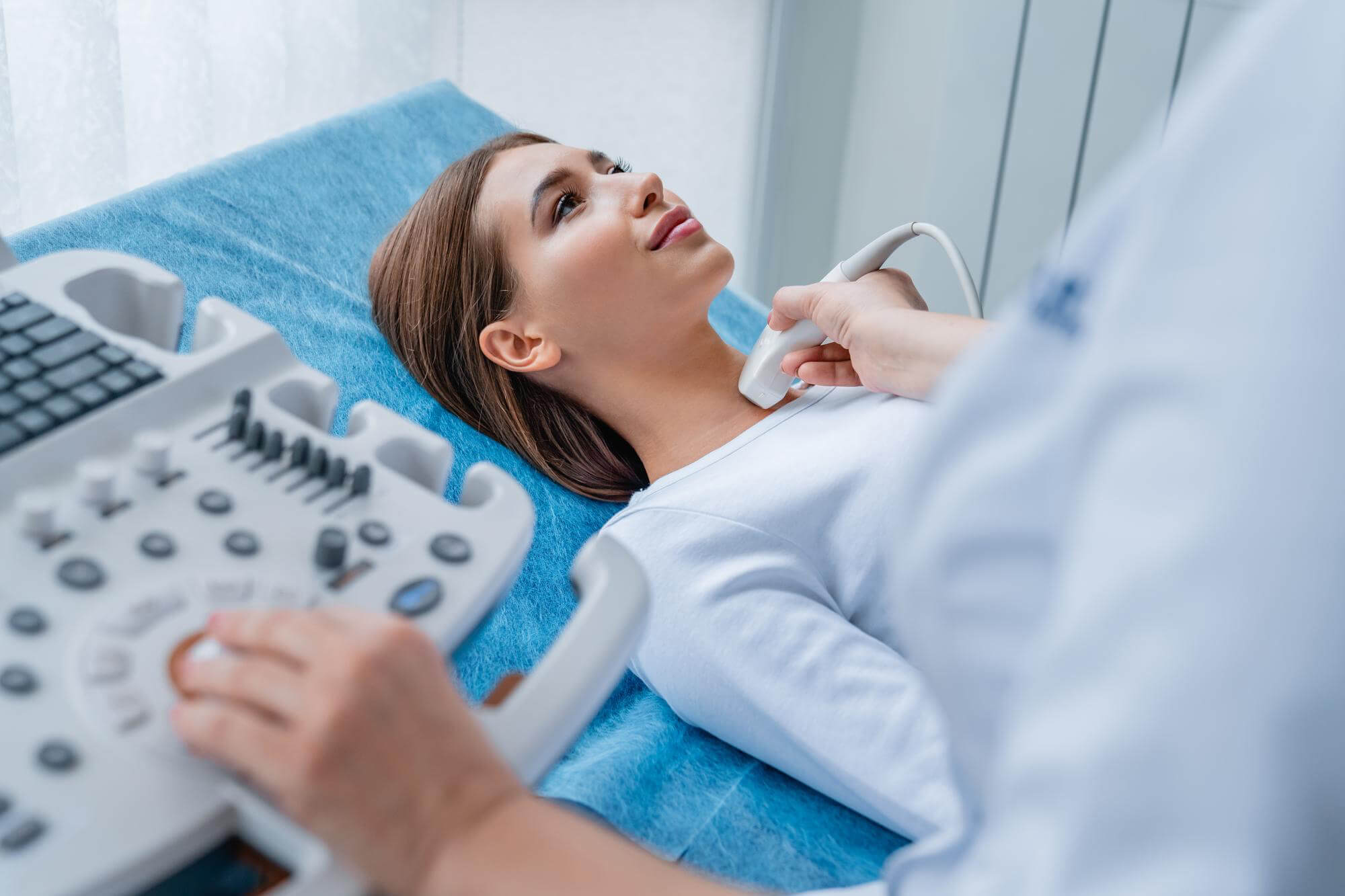How are thyroid surgeries performed, what types are there and when are they necessary? What costs should we expect?

The thyroid gland is a butterfly-shaped endocrine gland, a hormone-producing organ, located in the middle of the neck at the level of the larynx. On its posterior surface are the parathyroid glands, which also produce hormones. The main function of the thyroid gland is to produce thyroid hormone. These hormones stimulate metabolism and tissue growth, promote brain development and increase glucose and amino acid transport.
Total or partial thyroidectomy is indicated for thyroid disorders such as:

The aim of thyroid surgery is to remove thyroid abnormalities and, if possible, restore function. The procedure depends on the severity and type of thyroid abnormality, and may be a total or partial removal.
In cases of hyperthyroidism, medication or iodine isotope treatment can also make a significant difference. In the case of a nodular or enlarged thyroid, radioiodine treatment is an option if the patient cannot undergo surgery. For malignant tumours, surgery is the preferred treatment, but radiotherapy may also be used. Endoscopic thyroid surgery is only available under certain conditions, as is laser thyroid surgery.
Thyroid removal is performed under surgical conditions, under general anaesthesia. A skin incision is made in the cervical skin fold above the sternum, and then the thyroid gland is accessed after the muscles are separated.
Depending on the type of lesion, one or both thyroid glands are removed. In the case of malignant tumours, it may be necessary to remove the cervical lymph node or the tracheal lymph node. After removal, the muscles are sutured and the skin is closed.
The patient can return home 2-3 days after surgery, but physical rest is important for a few weeks, followed by gradual exercise and a balanced lifestyle to ensure a speedy recovery, and a return to a normal lifestyle after 1-2 weeks. The skin wound will take 7-10 days to heal, at which time the stitches will be removed. Recovery from thyroid surgery should be completely free of symptoms in about 4 weeks, at which time you can start to play more active sports.

Depending on the nature of the parathyroid disease, the aim of the operation is to remove the affected, overactive parathyroid gland or the benign or malignant tumour, if necessary by partial or complete removal of the thyroid gland. The parathyroid hormone will continue to be secreted by the 3 parathyroid glands left in place after the operation.
At Wáberer Medical Center, our goal is to make our patients as comfortable as possible on their path to recovery. To this end, you will be supported by case managers along the steps involved in the procedure, as well as being informed of the important things to know.
Looking for a private endocrinology practice? The best thyroid surgeons in Budapest are waiting for you at Wáberer Medical Center! Book an appointment for a private endocrinology consultation online quickly and easily, or call us at +36-1-323-7000!
Ha Ön már biztosan tudja hogy műtétre van szüksége, kérjen közvetlenül árajánlatot a mutet@wmc.hu e-mail címen!
A személyre szabott árajánlatot 2 munkanapon belül megküldjük Önnek, melyben valamennyi felmerülő költségről és lényeges körülményről tájékozódhat!

The aim of thyroid surgery is to remove thyroid abnormalities and, if possible, restore its function. The procedure depends on the severity and type of thyroid abnormality, and may be total or partial removal.
– Partial removal is performed when the lesion affects only one half of the thyroid gland, so that the remaining part retains all the functions of the thyroid gland, if only certain functions are functioning it can be easily treated with daily hormone replacement.
– Complete removal is indicated if the lesion affects the whole thyroid gland. In such cases, daily thyroid hormone treatment is required to replace the natural function of the thyroid gland.
The operation is performed under surgical conditions, under general anaesthesia. A skin incision is made in the cervical skin fold above the sternum, and then the thyroid gland is accessed after the muscles have been separated.
Depending on the type of lesion, one or both thyroid glands are removed. In the case of malignant tumours, it may be necessary to remove the cervical lymph node or the tracheal lymph node. After removal, the muscles are sutured and the skin is closed.
In the case of hyperthyroidism, medication or iodine isotope treatment can make a significant difference. In the case of a nodular or enlarged thyroid, radioiodine treatment is an option if the patient cannot undergo surgery.
For malignant tumours, surgery is the preferred treatment, but radiotherapy may also be used.
The patient can return home 2-3 days after the operation, but it is important to take it easy for a few weeks, then gradually exercise and a balanced lifestyle are recommended for a speedy recovery, which should be followed for 1-2 weeks to return to a normal lifestyle.
The skin wound will take 7-10 days to heal and the stitches will be removed.
Complete relief from symptoms is expected in about 4 weeks, at which time more active sports can be practised.
Our surgical prices are indicative, we always give an individual price!